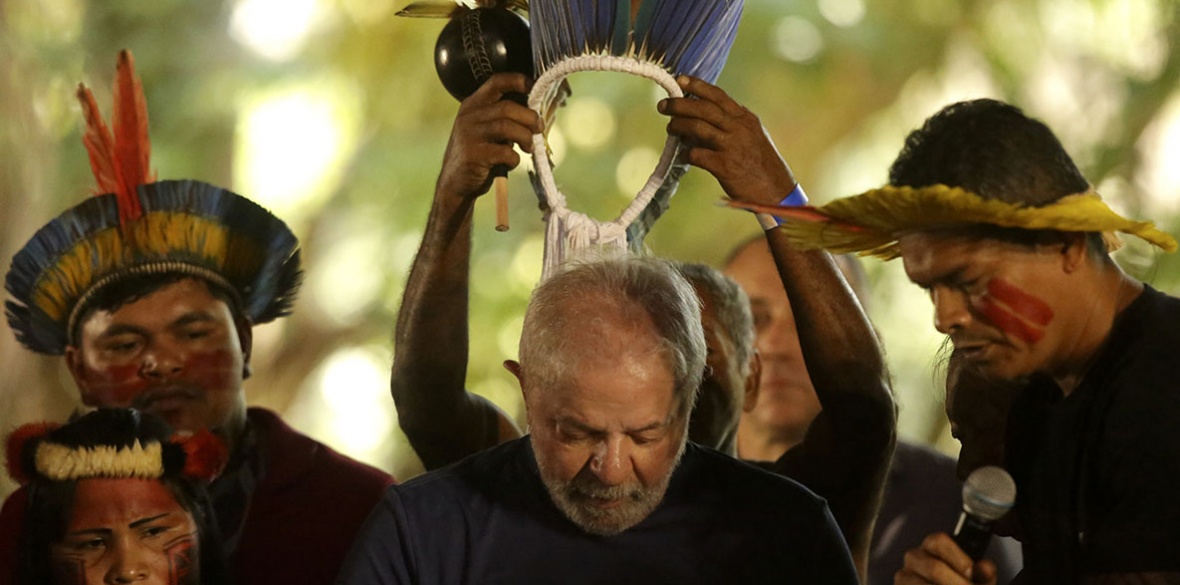This is the last article you can read this month
You can read more article this month
You can read more articles this month
Sorry your limit is up for this month
Reset on:
Please help support the Morning Star by subscribing here
CAMPAIGNERS for Indigenous people in Brazil are warning of the challenge facing the new president of the country.
Survival says the remarkable victory of Luiz Inacio Lula da Silva in the closely fought presidential election on Sunday is a crucial moment for autochthonous peoples and their lands.
The president elect, commonly known as Lula, will need to bring about a massive shift from “the devastating and criminal onslaught of the last four years,” the group said.
The group said that the much-needed change of direction from Lula “could mean the difference between survival and complete destruction.”
Over the last four years Indigenous people in Brazil have endured the most hostile government since the military dictatorship, the group said.
Lula has promised a change in direction and has pledged to uphold Indigenous rights and to demarcate and protect Indigenous territories.
Lula has also vowed to end the unprecedented levels of deforestation sanctioned by the government of President Jair Bolsonaro and to end the soaring numbers of killings of Indigenous people.
Survival said they were not expecting an overnight change but Lula will need to “exert substantial political will and resources to undo the deep damage that has been done to the institutions charged with protecting territories from invaders.”
But Survival points out that many anti-Indigenous politicians are in key positions in congress, which allies of Mr Bolsanoro still control.
This means “Lula and his team will face fierce opposition to uphold the constitution and protect Indigenous territories for their peoples’ exclusive use,” the group said.
Although they know he faces challenges, autochthonous peoples and their allies intend to hold Lula’s government to account.
Survival said: “We'll do all it takes to ensure that he upholds national and international law and blocks big infrastructure projects impacting Indigenous peoples’ lands that don’t have their consent.
“We will make sure he protects Indigenous territories so they can survive and thrive and be respected as the contemporary societies that they are.”
They added: “The stakes are particularly high for uncontacted tribes — probably the most vulnerable peoples on the planet.”
Survival was founded in 1969 as a campaign against the genocide of Amazon Indians.
It has expanded its work to support endangered Indigenous peoples across the world.











